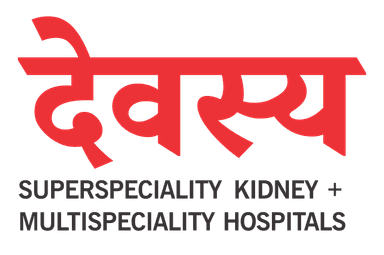Renal Artery Stenosis Treatments & Surgery
How Devasya Hospital Helps to Cure Renal Artery Stenosis?
Devasya is a leading hospital offering the best treatment for renal artery stenosis. The nephrologist or an interventional radiologist, as these specialists are typically involved in the diagnosis and treatment of renal artery stenosis. They can evaluate your condition and recommend appropriate treatment options, which may include angioplasty and stenting. It is the best hospital for renal artery stenosis treatment and angioplasty. The specialists understand your problem and provide the best suitable insights and recommendations.
Devasya Hospital has a strong reputation for treating renal artery stenosis. The modern facilities and infrastructure meet the necessary quality and safety standards. They offer specialized treatment programs and quality patient care. The patients and their family members offer comprehensive support services such as physical therapy, rehabilitation, and post-operative care. You get the best value for money when you choose us for renal artery stenosis.
FAQs
Renal artery stenosis is a medical condition characterized by the narrowing of one or both of the renal arteries, which supply blood to the kidneys. This narrowing can lead to decreased blood flow to the kidneys and cause health problems such as high blood pressure and kidney dysfunction.
Angioplasty is a medical procedure used to open narrowed or blocked blood vessels. It involves inserting a catheter with a balloon at its tip into the affected vessel. When the balloon is inflated, it pushes aside or compresses the plaque or obstruction, restoring proper blood flow. Angioplasty is commonly used to treat conditions like coronary artery disease and renal artery stenosis.
Angioplasty is a medical procedure that involves the use of a catheter with a balloon at its tip. The balloon is inserted into a narrowed or blocked blood vessel, such as a coronary artery or a renal artery. When the balloon is inflated, it compresses the plaque or obstruction, widening the vessel and restoring blood flow. In the case of renal artery stenosis, angioplasty is often used to treat the condition, sometimes with the addition of a stent to keep the artery open.
Symptoms of renal artery stenosis may include high blood pressure that is challenging to control with medications, reduced kidney function, and signs of fluid overload such as swelling and shortness of breath.
Complications of renal artery stenosis may include uncontrolled hypertension, kidney dysfunction or failure, and fluid retention leading to edema and shortness of breath. If left untreated, it can contribute to more severe cardiovascular issues.
Prevention strategies for renal artery stenosis primarily involve managing risk factors for atherosclerosis, such as maintaining a healthy lifestyle. This includes regular exercise, a balanced diet, weight management, smoking cessation, and the management of conditions like diabetes and high cholesterol. Early detection and management of hypertension are also essential for preventing or minimizing the impact of renal artery stenosis. If you suspect you have risk factors for this condition, consult with a healthcare provider for personalized guidance on prevention.



